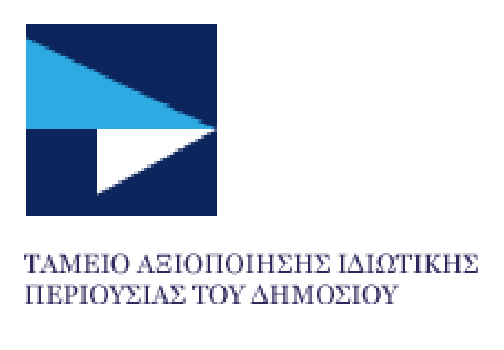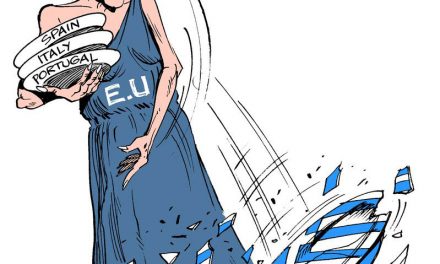Selling off state assets to pay debts barely worked the first time. So they’re trying it again.
By PIERRE BRIANÇON, Politico
A plan to privatize €50 billion worth of Greek state-owned assets looks like such a good idea that Greece’s creditors want to try it a second time. Even though it was hardly a success the first time around.
Back in 2011, under pressure from its eurozone creditors which had bailed it out the year before, Greece set up the Hellenic Republic Asset Development Fund to oversee the privatization of some €50 billion worth of public assets by the end of 2015.
So far TAIPED, as the fund is commonly known by its Greek acronym, has managed to return just €7.7 billion worth of state holdings to private investors.
No wonder that for most analysts, the July 12 deal between Greece and its creditors setting up another €50 billion privatization fund represents the triumph of hope over experience.
As Greece and its creditors have begun negotiating on the details of the country’s third bailout, the problems that crippled the first attempt at privatization remain. And the political context has changed, arguably for the worse.
Previous Greek governments at least paid lip service to the principle of privatization. Current Prime Minister Alexis Tsipras and his Syriza party, on the other hand, campaigned hard against asset-shedding by the state, tried to stop the program when they took over the government, and only reluctantly accepted the creation of the new fund during the dramatic all-night showdown that produced the latest deal.
Still, a European official argues that this time, it’s different. In this bailout, the fund “is to act as a guarantee that Greece will repay its debt. You can almost consider the assets as collateral,” the official said. By which he means that the proceeds of the sales have been earmarked for paying down the debt. Under the new deal, Greece is to transfer “valuable assets” to an independent fund that will “monetize the assets through privatization and other means.” It’s not clear what the “other means” might be, but the fund is expected to generate some €50 billion of returns over the life of the new bailout loans.
That’s another difference with the previous plan: the life of the new loan that eurozone governments might agree to extend to Greece may be as long as 30 years — the current maturity of the country’s public debt after it was restructured in 2012. If the creditors agree to give Athens some debt relief, as urged by the International Monetary Fund, the maturity might even be extended to some 50 years.
So that would take the privatization effort to a manageable €1 billion a year? Think again.
According to the IMF, Greece may struggle to privatize more than €500 million worth of assets annually. What has been sold in the last four years was the easiest to do politically and socially, the IMF noted in its review of Greece’s debt sustainability in early July. It has included some beach property in Rhodes, the state lottery, the football prognosis company or the horse-betting outfit, some land and real estate.
Still to be sold are sensitive infrastructure assets such as railways, ports, and water or energy utilities. And “experience has shown that there is deep-seated political resistance to privatization in Greece,” the Fund noted. When one of the many former heads of TAIPED called his country an “El Dorado” wide open to foreign capital back in 2012, he was widely criticized for his readiness to sell Greece to foreigners.
According to the new program, some €25 billion of the expected privatization returns will be used to pay back the recapitalization of Greek banks by the European Stability Mechanism — the eurozone bailout fund. Half the rest, or €12.5 billion, will help pay down the country’s public debt. And Greece will be able to use the remaining €12.5 billion to fund public investment projects.
That raises both the questions of which assets will end up in the new fund, and how aggressively Greece will be in its privatization drive.
The European Council’s July 12 statement doesn’t say it explicitly, but it looks like the state holdings in Greece’s four largest banks will end up in the Fund. The lenders can’t currently be privatized because they are nearly bust, but they are due to receive up to €25 billion in fresh capital from the ESM.
Once shored up, they can be considered as “valuable assets” and put up for sale. A state entity, the Hellenic Financial Stability Fund, set up in 2010, currently owns about 55 percent of the four banks’ capital. It will end up owning more after the recapitalization. Then the privatization’s success should mostly depend on the appetite of investors, itself linked to the overall state of the Greek economy.
The rest of the possible assets up for sale are made up of everything that remains in the sales program of TAIPED. It’s a hodgepodge made of ports, marinas, a former U.S. base, Olympic installations, the Athens and Thessaloniki water and sewage companies, boutique hotels, and even a castle in Corfu.
Do ports, utilities and the huge real estate and property portfolio of the Greek state amount to €25 billion? One of the criticisms of Yanis Varoufakis, the former Greek finance minister, against the privatization program was that it forced Greece to shed its assets when their price is at its lowest, at the worst of the country’s financial crisis. But spreading the assets sale over decades may help the government benefit from better prices in the future, if the economy recovers.
Whether the effort succeeds will hinge on the Greek government’s ownership of the project. Syriza’s ideological opposition to privatizations isn’t a good sign, even though Tsipras had to accept the bailout deal. The lawyer who had taken the lead in opposing previous sales of public assets in court, George Katrougalos, is now a cabinet minister.
The new privatization fund was originally to be located in Luxembourg under the auspices of an organization chaired by German finance minister Wolfgang Schaüble. As a concession to Tsipras, it will be based in Athens and managed by Greek officials, “under supervision of relevant European institutions.” That latter stipulation is intended to avoid the political meddling that tarred TAIPED’s action, with constant changes in management — five presidents and four chief executive officers in as many years.
That history has prompted some analysts to view the new privatization drive as bound to fail. “It’s different from the previous plan in that it is worse,” says Peter Doyle, an economist and former IMF staffer. “It’s an illusion to think you can privatize such assets without a close implication of the government. Is anyone going to buy a water utility if the local municipality fixes the water tariffs?”
TAIPED, which has acquired some expertise on managing state assets in the last four years, may become the new privatization vehicle, at the price of a change of its governance and bylaws. But that is still under discussion and hasn’t been decided yet, says a fund official.
As about half the assets earmarked for privatization are the Greek state’s giant real estate holdings, the program will soon encounter the same problems that crippled past efforts. The IMF summed them up in its review: “lack of a good database, disputed property rights, and problems securing needed permits for land development, such as environmental, forestry, coastline, and spatial planning.” Real estate privatization can only be “a protracted process with limited annual receipts,” the IMF notes.
Considering the “practical obstacles, administrative hurdles, legal impediments and policy coordination demands,” privatization in Greece can only be “a Gargantuan challenge,” Jens Bastian, an economist and former member of the EU task force for Greece, wrote last year in Macropolis.
Doyle is worried that in a context of macro-economic chaos, and with permanent noise of Grexit being made in Germany and some of the northern countries, “the privatizations will look like Russia’s in the 1990s.” Foreign investors will not want to take the risk, “and the assets will end up with Greek oligarchs, whom everyone is trying to dislodge but will become even more entrenched.”
The state itself doesn’t have a proper inventory of its holdings. Property rights are unclear or disputed, paving the way for endless days in courts. The planning and developing authorization process tends to get lost in endless red tape, making it impossible to set a clear value for the assets.
That explains why the covert hope of eurozone and IMF officials is that privatization could be a tool to clean up Greece’s governance as much as a way to raise revenue. A proper process, based on the rule of law, will require myriad of changes in laws and regulations to make privatizations transparent and fair. As one of these officials puts it: “the whole crisis is as much about the screwed Greek political system as it is about the country’s finances. The better if the bailout helps them fix that.”



















